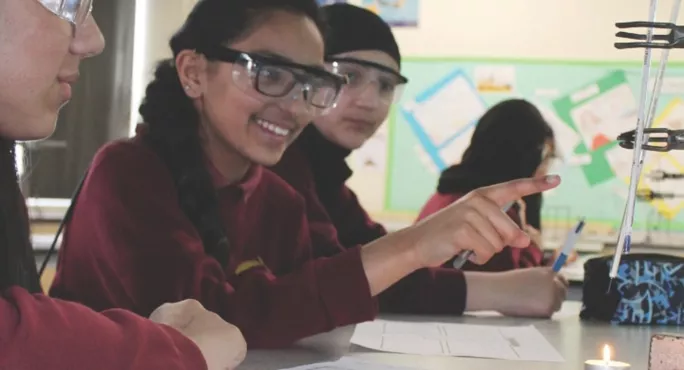Attending a female-only school gives girls more confidence and the chance to take on leadership roles that will help them to “break glass ceilings” in the future, says Julie Keller, head of Nottingham Girls’ High School.
In an interview with the Press Association, Ms Keller also said she believes that in the wake of widespread debate about sexual harassment, and the rise of movements such as the #metoo campaign, young women are becoming more willing to stand up and speak out on issues that are important to them.
She said it was her opinion that girls at single-sex schools are better prepared to deal with issues such as gender inequality, because “they have developed the skills that you need to do well in the world, to achieve highly; they have the confidence skills; they have the articulation skills to say how they feel”.
Ms Keller said she believes that young women who attend mixed-sex schools can also go on to success, but added: “I definitely think girls at a girls’ school will be the girls that go on and break the glass ceiling, because actually it’s no coincidence, if you look at the top echelons of society, in all different fields, women at the top have more often than not gone to all-girls’ schools, and that evidence speaks for itself.”
‘Not held back by stereotypes’
Of the six women in Theresa May’s Cabinet, five were educated at least in part at girls’ schools, with the prime minister herself joining a girls’ grammar school at age 13 that later became a co-educational comprehensive. In addition, Nottingham Girls’ High, part of the Girls’ Day School Trust, counts Dame Stella Rimington, the first female director general of MI5 and theatre company boss Dame Rosemary Squire among its alumni.
Ms Keller went on to say that young women at girls’ schools, such as her own, leave as “confident” women who have had opportunities to lead. “I think that they are in a good position because of having had that experience where their school life has been that they are not held back because of stereotypes.”
“So when they go out into the world, when they go to university, they tackle what is thrown at them through their resilience,” Miss Keller added.
The headteacher urged all schools to ensure that girls can take on leadership roles. “I think that all schools, whether all-girls or co-ed, have to give girls the opportunities, and the leadership opportunities, because they are girls who will go on to be able to carry on this fight and to empower other women,” Ms Keller said.
“I worked for 11 years in a co-ed school and you have to make sure that the same goes on there; that there has to be the opportunities for girls to lead. And it doesn’t come naturally in a co-ed environment because the boys naturally put themselves forward and the girls let that happen, and we don’t do that obviously in an all-girls’ school.”
Ms Keller also said that in her experience, young women are increasingly speaking out about inequalities or unacceptable behaviour they see around them. “What’s happening and what’s clearly happening around the world, is that women are coming forward and speaking out, and what that does to young girls is to say: ‘You have a voice to speak out, too,’” she said.
She added: “I think too often, in recent years, women and girls who have spoken out have just been easily put down as ‘aggressive feminists’, or that women and girls who have been outspoken are often called bossy, or brash, or bolshy, and that’s not acceptable because that does not apply with men.
“I think all the things that are going on around the world are allowing young girls to say, ‘You know what, we should have a voice, and actually we’re not bolshy and brash and it’s perfectly fine to speak out.’ And I think they’ve been given the go-ahead to do that.”
Want to keep up with the latest education news and opinion? Follow Tes on Twitter and like Tes on Facebook




